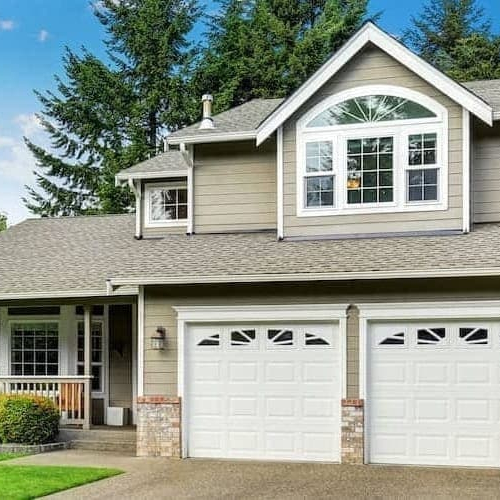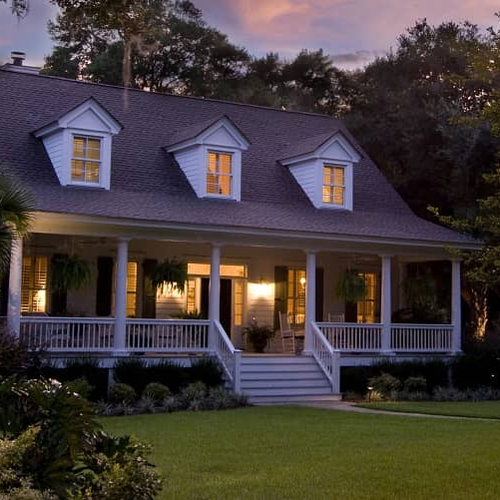What is a 20-year mortgage, and should you consider one?
Contributed by Karen Idelson, Tom McLean
May 20, 2025
•5-minute read

As of November 16, 2025, both Fannie Mae and Freddie Mac no longer have a minimum credit score threshold in their conventional loan eligibility guidelines. Loan approval will instead be based on an evaluation of overall credit risk factors.
When you’re shopping for a mortgage, the most common loan terms you’ll find are 30 years and 15 years. But there are other options, including a 20-year mortgage. Here’s what you need to know about a 20-year mortgage and whether it’s right for you.
Understanding a 20-year fixed mortgage
A 20-year mortgage is a fixed-rate mortgage with a repayment period of 20 years. As with all fixed-rate mortgages, this means the interest rate will remain stable over time and you lock in a regular payment for 20 years. A 20-year loan term isn’t available for adjustable-rate mortgages.
The 20-year fixed-rate mortgages you see advertised may have a lower interest rate than 30-year or 15-year fixed-rate mortgages, which means you will pay less interest on your mortgage. You also will pay less interest over the life of the loan because the loan has a shorter term. But it’s also important to keep in mind the monthly payment may be more expensive because you will be paying back the amount of your mortgage over a shorter period.
How to get a 20-year fixed mortgage
If you decide to go for a 20-year mortgage, you’ll go through the same steps as you would with a 30-year fixed-rate mortgage or a 15-year fixed-rate mortgage. You will work with a lender and provide documentation to show that you are able to pay the monthly cost of the loan. With a 20-year fixed mortgage, you may need a higher income requirement or higher down payment than you would with a 30-year fixed mortgage to make the cost of the mortgage work for you since the monthly payments may be higher on a loan that takes ten years less to pay off.
When you begin to look for a 20-year fixed mortgage remember to do your research. Start by comparing mortgage lenders and rates while also reading customer reviews. You can also Improve things like your credit score and debt-to-income ratio to increase your chances of being approved and get better terms on your loan.
20-year mortgage rates vs. rates on other loan terms
Looking at a comparison of 20-year mortgage with 15- and 30-year terms, you can explore the similarities and differences between these loan options.
| Feature | 15-year mortgage | 20-year mortgage | 30-year mortgage |
|---|---|---|---|
| Monthly payment | Highest | Moderate | Lowest |
| Loan term | 15 years | 20 years | 30 years |
| Interest paid over time | Lowest | Moderate | Highest |
| Payoff time | Fastest | Moderate | Slowest |
| Financial flexibility | Least flexibility | Moderate flexibility | Most flexibility |
| Best for | Buyers who can afford higher payments and want to pay off the loan quickly |
Buyers who want a balance between payoff time and monthly payment |
Buyers who need lower monthly payments and can afford a longer payoff time |
Types of 20-year mortgages
You can find several types of 20-year mortgages. Here are a few of the most often-used loan types.
Conventional 20-year mortgage
The most standard option for a 20-year mortgage is a conventional loan. First-time home buyers can often make a down payment as low as 3% with this loan type; however, most buyers must put at least 5% down.
Keep in mind that if you make a down payment of less than 20%, you’ll have to pay for private mortgage insurance. To qualify for a 20-year conventional loan, you’ll need a credit score of at least 620 and a DTI ratio of 50% or less.
FHA 20-year mortgage
FHA loans provided by the Federal Housing Administration are a great option for those who have a low credit score or minimal savings.
To secure an FHA loan, you must have a credit score of 580 or higher and make a down payment of at least 3.5% of the purchase price. However, if you go with an FHA loan, you should also expect to pay a mortgage insurance premium.
VA 20-year mortgage
Another 20-year mortgage option is a VA loan, which is guaranteed by the Department of Veterans Affairs. The goal of these loans is to provide an affordable financing opportunity for eligible veterans and active-duty military personnel. They also provide homeownership opportunities for qualifying surviving spouses.
For you to qualify, lenders typically require a FICO® Score of at least 620. If you meet that requirement, you won’t have to make a down payment or pay for PMI.
Pros of a 20-year fixed-rate mortgage
Getting a 20-year mortgage is a good way to balance the tradeoffs of a 30-year and 15-year mortgage. You may find it helpful to look at what specifically makes a 20-year mortgage advantageous.
Lower interest payments than a 30-year mortgage
A big benefit of 20-year mortgages is that they enable borrowers to make lower interest payments than they would with a 30-year mortgage. Yet, it’s not just the shorter term that enables borrowers to save on interest. Typically, 20-year mortgage rates are lower than 30-year rates.
More financial flexibility than a 15-year mortgage
With a 20-year mortgage, it may take longer to build up equity in your home and pay off your loan. But, your monthly payments are significantly lower than they’d be with a 15-year term. While some people like the idea of getting rid of debt faster, others believe it’s better to have more financial flexibility.
Cons of a 20-year fixed-rate mortgage
A 20-year mortgage also has some downsides. Review some of the most common disadvantages below.
Higher interest payments than a 15-year mortgage
Just as you pay more interest with a 30-year term than a 20-year term, you’ll have to make higher interest payments if you select a 20-year mortgage over a 15-year mortgage. Again, the increased amount is a result of making payments for an additional 5 years and having a higher interest rate.
15-year vs. 20-year interest example
If we return to the previous example used to compare 20-year mortgages with 15-year mortgages, the 20-year mortgage rate is 6%, while the 15-year rate is 5.5%. Based on these interest rates, you’d pay $251,802 in interest for a 20-year mortgage and $164,763 for a 15-year mortgage.
Eventually, the 20-year mortgage would cost you almost $87,039 more than the 15-year mortgage. Therefore, one disadvantage of the 20-year term is that it’s ultimately more expensive than the 15-year term despite allowing for a lower monthly payment.
Less financial flexibility than a 30-year mortgage
When choosing a 20-year mortgage, a borrower commits to paying off their loan in 10 years less than they would’ve paid off their loan with a 30-year mortgage. Because their loan term is shorter, their monthly payments are higher.
Should you refinance to a 20-year mortgage?
A 20-year mortgage can benefit those who want to quickly pay off their mortgage but still have lower monthly payments. However, multiple factors can influence whether a refinance is a good decision.
Here are some situations where refinancing to a 20-year mortgage could be beneficial:
- Interest rates have dropped significantly since you purchased your home.
- You have an adjustable-rate mortgage and can save money by switching to a fixed-rate loan.
- You have a 30-year term but can now afford to make the higher payments associated with a shorter-term loan.
- You want to take money out of the equity you’ve built in your home and use it to make home improvements, consolidate debt or cover other expenses.
The bottom line: A 20-year home loan can save you money
A 20-year mortgage may be a good compromise if you’re on the fence about which loan term to choose. Obtaining a 20-year mortgage can allow you to save more money on interest than you would with a 30-year term. Plus, it offers lower monthly payments than with a 15-year term. As with any mortgage term, a 20-year home loan has pros and cons, but it can be a solid option for some home buyers.
Are you interested in a 20-year mortgage or checking out other loan terms? Apply for initial approval and start the mortgage process today!

Carey Chesney
Carey Chesney is a Realtor®, the co-owner of Chesney Team Realtors, and a contributing writer for Rocket. His writing focuses on the real estate landscape including home buying/selling, investment properties, and commercial real estate. Carey received his Bachelor's in English at University of Wisconsin-Madison and his Masters in Integrated Marketing & Communications at Eastern Michigan University. He lives with his wife and 3 children in Ann Arbor, Michigan.
Related resources
6-minute read
A complete guide to short-term mortgages
Want to be mortgage-free sooner? Discover how short-term home loans can help you save thousands and pay off your home faster.
Read more

5-minute read
40-year mortgage: An explanation, the pros and cons
A 40-year loan term can bring down your monthly payment in exchange for paying more overall interest and some riskier features. Learn more about 40-year loan...
Read more

6-minute read
15-year vs. 30-year mortgage comparison
A 15-year mortgage is paid over 15 years, while a 30-year mortgage is paid over 30 years. Understand the pros and cons of both loan terms.
Read more